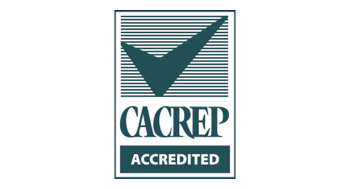Promote Peace and Harmony
Become a professional and ethical psychotherapist with a multicultural, trauma-informed, and ethically sound lens. Through hands-on training, impactful fieldwork, and faculty mentorship, you’ll gain a holistic, system-based perspective to treating relational and interpersonal issues in children, adolescents, adults, couples, and families. This CACREP-accredited program, like all AGS programs, promotes social interest, advocacy, and harmony within yourself and your practice.
Powerful Integrated Curriculum
This 60-credit master’s program features expert-led coursework, internship experience, and an electronic portfolio that showcases all you’ve learned. Full-time students can complete the program in approximately two years.
Find Your Mentor
The diverse faculty is the foundation of the Adler Graduate School learning experience. Our faculty are:
- passionate educators with online teaching expertise
- long-time mental health professionals with an array of clinical, leadership, and research experience
- dedicated to supporting your success
Licensure Information
Our program prepares you to meet licensure requirements for the licensed marriage and family therapist (LMFT) credential in MN. Does our program meet licensure requirements in your state? Visit the American Association for Marriage and Family Therapy website for state-specific information.
The Master of Arts in Counseling, Marriage, Couple, and Family Counseling program is accredited by the Council for Accreditation of Counseling and Related Education Programs (CACREP).

Spotlight
Learn more about our School Counseling faculty, students, and alumni.
Your Future
At Adler Graduate School, you’ll experience professional growth and personal transformation. Our graduates build successful and meaningful careers with lifelong support from AGS.
A Day In the Life
Your special training in both psychotherapy and family systems can help couples or family members overcome challenging situations, cope with mental or emotional issues, or reconcile differences. You’ll address how behaviors of all family or relationship members affect individuals, and may perform individual counseling and diagnose or uncover untreated or undertreated mental health conditions. LFMTs typically see clients for a short time. You’ll work with clients to outline achievable goals for your time together.
Professional Settings
- Mental health clinics
- Private practice
- Hospitals—both inpatient and outpatient settings
- Social services
- Residential treatment facilities
- Corrections
- Hospice care centers
- Community settings
Required Courses
Please refer to our course catalog for the most up-to-date course requirements.
Program Outcomes
All Master of Arts Degree in Counseling students graduate with the key skills of a Marriage, Couple, and Family Counselor:
- Social Justice and Advocacy: demonstrate the knowledge, skills, and practices to deliver culturally appropriate counseling services, advocate for clients, and understand how to influence policy to enhance the practice of clinical mental health counseling.
- Professional Identity: show a commitment to their identity as counselors through membership and activities in professional organizations, and through ethical behavior in their work with clients and other professionals.
- Counseling, Prevention, and Intervention: demonstrate the knowledge, skills, and theory-based practices of culturally appropriate diagnosis, treatment, referral, and prevention in promoting the well-being of marriages, couples, and families.
- Assessment and Diagnosis: demonstrate the knowledge, skills, and practices of culturally appropriate and holistic clinical assessment and diagnosis of both psychopathology and normal developmental challenges, including appropriate use of diagnosis during trauma-causing events.
- Ethical Decision Making: demonstrate competent use of ethical frameworks and methods to make ethical decisions across clinical care settings.
- Research and Evaluation: competently and critically evaluate clinical mental health counseling research, demonstrate understanding of evidence-based treatments and outcome evaluation, and apply appropriate models of program evaluation.


